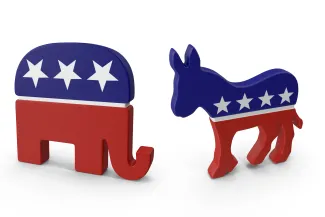
IRA cuts would remove $1.58 billion from two Republican-led CO districts
© JJ Gouin - iStock-1642293566
Click play to listen to this article.
Congress is set to claw back $6.5 billion in climate-related Inflation Reduction Act investments to help pay for the Trump administration's priorities, including tax cuts and mass deportations but critics said the move would cost jobs and blunt the administration's goal of energy dominance by reducing domestic energy sources.
Saul Levin, campaigns and political director for the Green New Deal Network, said if passed, $580 million in funding would disappear from Colorado's 4th district, represented by Representative Lauren Boebert, R-Colo.

© fitimi - iStock-528483210
"In the 3rd District, which is represented by (Republican) Jeff Hurd, there's an estimated $1 billion that has been invested through the IRA," Levin pointed out. "Regardless of people's exact politics, most people don't want that money to be pulled out."
The House Ways and Means panel plans to revoke tax credits for electric vehicle purchases and home energy efficiency improvements, according to Reuters. The House Energy panel's plan would cut funding for limiting methane emissions at oil and gas facilities, reporting greenhouse gas emissions, reducing air pollution near schools and expanding electric grids to bring wind and solar power to homes and businesses.
Philip Rossetti, senior energy fellow for the think tank R Street Institute, believes the subsidies for clean energy were too costly but did reduce climate pollution. He added the investments will need better transmission infrastructure to be effective.
"Princeton University did a study on this, and they estimated that about 80 percent of the emission benefits in the electric power sector from the IRA subsidies are locked behind additional transmission infrastructure buildout," Rossetti explained.
President Donald Trump campaigned on a promise to put an end to the Biden-Harris administration's efforts to mitigate climate change. Levin noted current proposals in Congress do not cut direct subsidies to fossil fuel companies.
"Even though for decades it's been really clear that there's a huge public health risk to using fossil fuels, we're still giving out subsidies to the tune of $170 billion to oil and gas companies and CEOs," Levin emphasized.

















